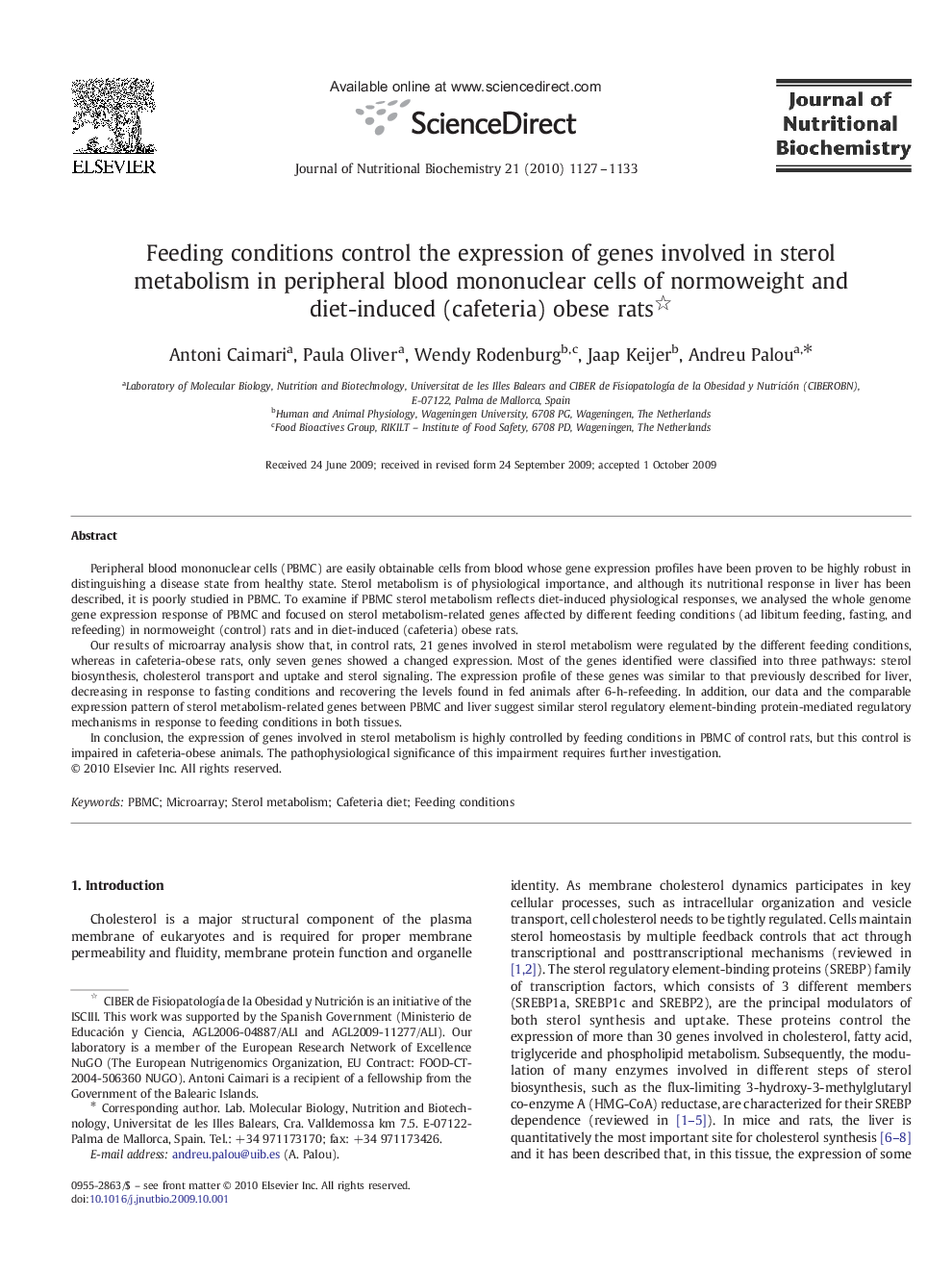| Article ID | Journal | Published Year | Pages | File Type |
|---|---|---|---|---|
| 1989995 | The Journal of Nutritional Biochemistry | 2010 | 7 Pages |
Peripheral blood mononuclear cells (PBMC) are easily obtainable cells from blood whose gene expression profiles have been proven to be highly robust in distinguishing a disease state from healthy state. Sterol metabolism is of physiological importance, and although its nutritional response in liver has been described, it is poorly studied in PBMC. To examine if PBMC sterol metabolism reflects diet-induced physiological responses, we analysed the whole genome gene expression response of PBMC and focused on sterol metabolism-related genes affected by different feeding conditions (ad libitum feeding, fasting, and refeeding) in normoweight (control) rats and in diet-induced (cafeteria) obese rats.Our results of microarray analysis show that, in control rats, 21 genes involved in sterol metabolism were regulated by the different feeding conditions, whereas in cafeteria-obese rats, only seven genes showed a changed expression. Most of the genes identified were classified into three pathways: sterol biosynthesis, cholesterol transport and uptake and sterol signaling. The expression profile of these genes was similar to that previously described for liver, decreasing in response to fasting conditions and recovering the levels found in fed animals after 6-h-refeeding. In addition, our data and the comparable expression pattern of sterol metabolism-related genes between PBMC and liver suggest similar sterol regulatory element-binding protein-mediated regulatory mechanisms in response to feeding conditions in both tissues.In conclusion, the expression of genes involved in sterol metabolism is highly controlled by feeding conditions in PBMC of control rats, but this control is impaired in cafeteria-obese animals. The pathophysiological significance of this impairment requires further investigation.
